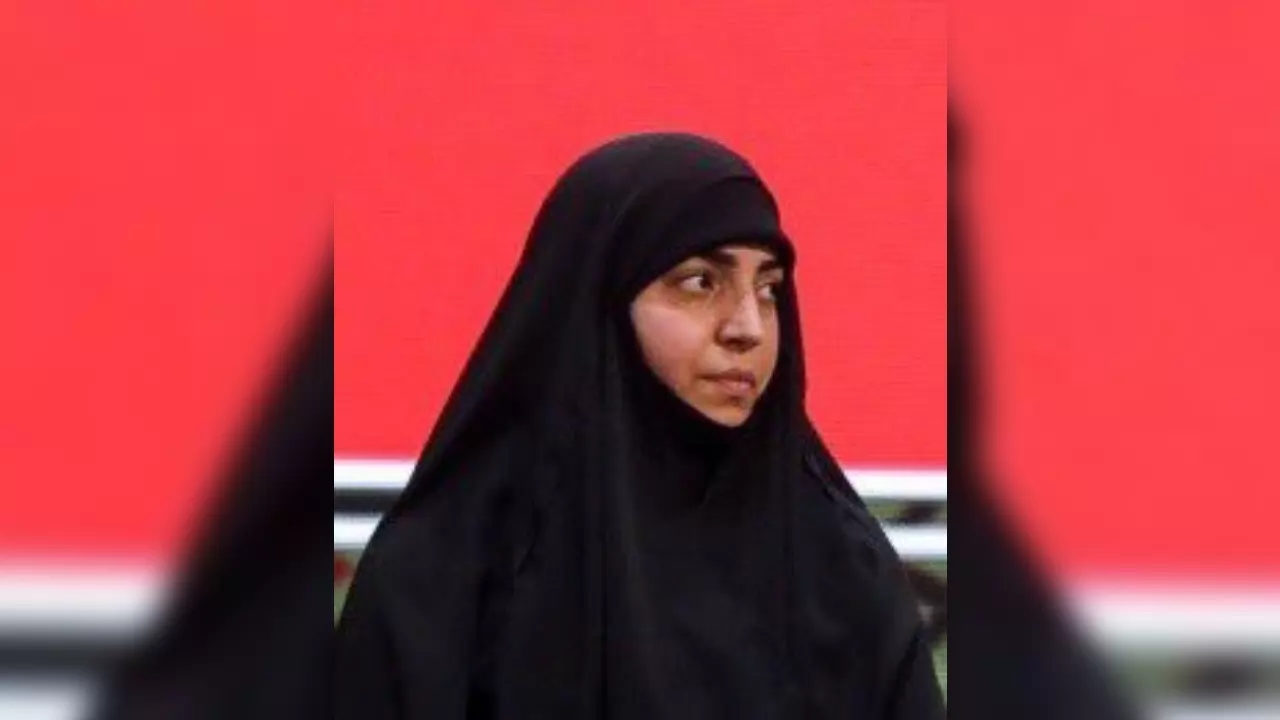
Zainab Nasarallah (X/kasyap_mayank)
Israel- Hezbollah War: In a rapidly escalating conflict between Israel and Hezbollah, reports have surfaced suggesting that Zainab Nasrallah, the daughter of Hezbollah leader Hassan Nasrallah, was killed in an Israeli airstrike targeting Hezbollah’s strongholds in the suburbs of Beirut. If confirmed, her death would have profound implications for the ongoing conflict between Israel and Hezbollah, marking a significant escalation in the regional tensions.
On Friday, Israel intensified its airstrikes on Lebanon, focusing on Hezbollah's central command in Beirut. According to Israeli media outlet Channel 12, Zainab Nasrallah was among the casualties in the strike aimed at eliminating high-ranking officials of the Iran-backed militant group, including her father, Hassan Nasrallah. The Israeli military has not officially confirmed her death, and there has been no statement from Hezbollah or Lebanese authorities.
Zainab was known for her strong loyalty to Hezbollah and her vocal support for the group's cause. She had previously spoken about the sacrifices her family has made, including the loss of her brother Hadi Nasrallah, who was killed by Israeli forces in 1997. If her death is confirmed, it could serve as a rallying point for Hezbollah supporters and potentially intensify the group’s response to the conflict.
#ZainabNasrallah pic.twitter.com/088iSmb0yK
— Mayank Kasyap (@kasyap_mayank) September 27, 2024
Zainab Nasrallah’s passing, if verified, could carry heavy symbolic weight for Hezbollah, as martyrdom is a revered concept within the group and its support base. Her public expressions of loyalty to Hezbollah and her family’s sacrifices have resonated deeply with many of the group’s followers, amplifying her status within Hezbollah’s narrative. Her death could provoke an intensified retaliation against Israel, further escalating a conflict that has already claimed over 800 lives in just a week.
As of Saturday, the status of Hassan Nasrallah remains uncertain. Despite unverified reports of his survival, Hezbollah has not issued an official statement regarding his condition. An Israeli official told The Jerusalem Post that Nasrallah was a primary target of the airstrikes, saying, "Hard to believe he [Nasrallah] got out of it alive."
Following Friday’s assault, thousands of residents fled Beirut’s southern suburbs, seeking refuge in downtown Beirut and along the coastline. Many feared a ground invasion by Israel, which has so far been limited to aerial bombardments. “They want to destroy Dahiyeh, they want to destroy all of us,” said Sari, a man who fled the area after receiving an evacuation order from Israeli forces.
Although reports from Iranian and Hezbollah sources, including Iran's Tasnim News Agency, indicate that Nasrallah is alive, the uncertainty surrounding his fate has added to the tension in the region. A senior Iranian official stated that Tehran was working to verify Nasrallah’s condition, while the Israeli military reported that several projectiles had been fired from Lebanon into Israel, with some intercepted by the Iron Dome defense system.
The airstrikes targeting Nasrallah marked the heaviest Israeli assault on Beirut since the 2006 Lebanon War. During the five-hour bombardment on Friday, Israel claimed to have killed Hezbollah's missile unit commander, Muhammad Ali Ismail, along with his deputy, Hossein Ahmed Ismail. Lebanese health authorities confirmed the deaths of six people and injuries to 91 others in the latest strikes, which destroyed several buildings in Hezbollah-controlled areas.
The situation in Beirut’s southern suburbs remains volatile, with Israel warning civilians to evacuate before further strikes on missile launchers and arms depots hidden in civilian areas. Hezbollah has denied the presence of any weapons in the affected buildings, stating that Israel’s claims are unsubstantiated.
Ahead of the latest round of airstrikes, Israeli Prime Minister Benjamin Netanyahu delivered a firm message at the United Nations, warning Iran and Hezbollah of further consequences if hostilities continue. He emphasized Israel’s right to defend itself and warned Iran that “there is no place in Iran where the long arm of Israel cannot reach.”
“Israel will win this battle. We will win this battle because we don’t have a choice,” Netanyahu said, recalling the historical suffering of the Jewish people and asserting Israel’s strength in the face of its enemies. His speech prompted several delegations to walk out as he took the podium, but his message was clear: Israel will continue its military campaign until it has neutralized the threat posed by Hezbollah.
Netanyahu also called on the international community to stop appeasing Iran, warning that the current policy endangers the entire Middle East and could have global ramifications. Iran, which has staunchly supported Hezbollah, condemned the Israeli strikes as a violation of "red lines" and accused Israel of using U.S.-supplied "bunker-buster" bombs in its attack on Beirut.
With hundreds of rockets already fired by Hezbollah into northern Israel, including a recent strike on the city of Safed, the conflict shows no signs of abating. As tensions between Israel and Hezbollah continue to escalate, the risk of a broader regional war involving Iran and other nations looms large. Both sides appear unwilling to back down, raising the stakes in what is already one of the most dangerous confrontations in the region’s recent history.





Copyright © 2026 Top Indian News
